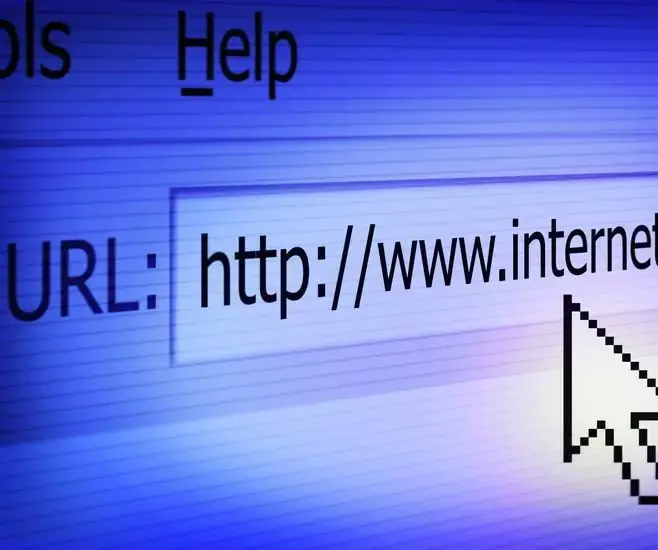HOW INTERNET WORKS: An essential guide for your Safety
The Internet is a global network of interconnected computers that communicate through a series of protocols. At its core, the Internet is made up of a vast network of servers, routers, and other hardware devices and how internet works together to transmit data. These devices are connected through a system of cables, fiber optics, and wireless technologies that allow for the transfer of information across vast distances. The Internet operates on a decentralized system, meaning that there is no central authority controlling it. Instead, various organizations and entities work together to ensure the smooth functioning of the Internet.
Role of Internet Service Providers (ISPs)
Internet Service Providers (ISPs) play a crucial role in the functioning of the Internet. ISPs are companies that provide individuals and businesses with access to the Internet. They do this by connecting their customers to the larger network of the Internet through various means, such as cable, DSL, fiber optics, or satellite. ISPs also manage the flow of data between their customers and the rest of the Internet, ensuring that information is delivered quickly and securely. Without ISPs, users would not be able to access the vast resources available on the Internet.
Alert! Internet Safety Essentials: Change Your Router Password
Your router is the gateway to your home network and all the devices connected to it. It acts as a bridge between your devices and the internet, making it a prime target for hackers. By accessing your router, hackers can gain access to all the devices connected to your network and how Internet Works, including personal computers, smartphones, and even smart home devices.
Most routers come with a default username and password set by the manufacturer. These default credentials are widely known and can be easily found online, making it easy for hackers to gain access to your network. Changing your router password from the default one adds an extra layer of security and makes it harder for hackers to breach your network.
Domain names and IP addresses
Domain names and IP addresses are essential components of how the Internet works. A domain name is a human-readable address that corresponds to a specific IP address. IP addresses, on the other hand, are numerical labels that are used to identify devices on a network. When you type a domain name into your web browser, a Domain Name System (DNS) server translates that domain name into the corresponding IP address, allowing your device to connect to the correct server on the Internet. This system of domain names and IP addresses helps users navigate the vast network of the Internet with ease.
Web browsers and search engines
Web browsers are the software applications that allow users to access and navigate the World Wide Web. Popular web browsers include Google Chrome, Mozilla Firefox, and Safari. Search engines, such as Google, Bing, and Yahoo, help users find specific information on the internet by entering keywords or phrases. These tools are essential for navigating the vast amount of information available online.

Understanding URLs and hyperlinks
URLs, or Uniform Resource Locators, are the addresses used to locate specific resources on the internet. They typically start with “http://” or “https://” and include the domain name, such as www.example.com, followed by the specific path to the resource. Hyperlinks are clickable text or images that redirect users to another webpage, document, or resource. Understanding URLs and hyperlinks is crucial for efficiently navigating websites and accessing the desired information.
Staying safe online

In the digital age, it is important to stay vigilant and protect personal information while navigating the internet. This includes avoiding online scams, such as phishing emails or fraudulent websites, that attempt to steal sensitive information. Users should also be cautious when sharing personal information online and ensure that they are using secure websites when making online transactions. Implementing strong passwords, regularly updating security software, and being aware of potential threats can help users stay safe while browsing the internet works .
Email and Instant Messaging
Email and instant messaging are two of the most common forms of communication on the internet. It allows for sending messages, documents, and files to others over the internet. It is widely used for both personal and professional communication. Instant messaging, on the other hand, enables real-time communication between individuals or groups. Popular instant messaging platforms include WhatsApp, Facebook Messenger, and Slack. These tools are convenient for quick exchanges and keeping in touch with others.
Social Media Platforms
Social media platforms have revolutionized the way people communicate online and how internet works in it. Sites like Facebook, Twitter, Instagram, and LinkedIn allow users to share updates, photos, and videos with their network of friends, family, and colleagues. Social media enables users to connect with others, engage in conversations, and stay informed about current events and trends. It has become a powerful tool for networking, marketing, and building relationships in both personal and professional spheres.
Video Conferencing and Online Collaboration Tools
Video conferencing and online collaboration tools have become essential for remote work and virtual meetings. Platforms like Zoom, Microsoft Teams, and Google Meet enable users to conduct face-to-face meetings, presentations, and webinars from anywhere with an internet connection. These tools also offer features like screen sharing, chat, and file sharing, making it easy for teams to collaborate on projects and communicate effectively. Video conferencing and online collaboration tools have become indispensable for businesses, educational institutions, and organizations looking to stay connected and productive in a digital world.
Digital Citizenship and Online Etiquette
Digital citizenship refers to the responsible use of technology and the internet. This includes following online etiquette guidelines such as being respectful to others, avoiding spreading false information, and protecting one’s personal information. It is important to remember that our online actions can have real-life consequences, so it is crucial to practice good digital citizenship.

Cyberbullying and Online Harassment
Cyberbullying is a serious issue that can have detrimental effects on individuals’ mental health and well-being. It is important to be aware of the signs of cyberbullying and know how to report and block any harmful behavior online. Online harassment can take many forms, including threats, hate speech, and stalking. It is important to stand up against online harassment and support those who may be experiencing it.
Tips for protecting personal information
One of the best ways to protect personal information online is to be cautious about sharing sensitive data. This includes not giving out personal information to unknown or unverified sources, being wary of phishing emails and messages, and avoiding clicking on suspicious links. Additionally, individuals should regularly update their devices and software to patch security vulnerabilities and use reputable security software to protect against malware and other cyber threats.
Importance of strong passwords and encryption
Strong passwords are essential for protecting online accounts and personal information. A strong password should be unique, complex, and not easily guessable. It is also recommended to use two–factor authentication whenever possible for an added layer of security. Encryption is another important aspect of online safety, as it scrambles data to make it unreadable to unauthorized users. End-to-end encryption is particularly important for communication apps and services to ensure that messages and data are secure and private. By following these tips and practices, individuals can significantly enhance their online safety and security.
Here we understand how internet works in our day to day life. We will understand potential challenges and opportunities for teenagers in the digital age in forthcoming issue of the ENTECH Magazine.
Additionally, to stay updated with the latest developments in STEM research, visit ENTECH Online. Basically, this is our digital magazine for science, technology, engineering, and mathematics. Furthermore, at ENTECH Online, you’ll find a wealth of information.






